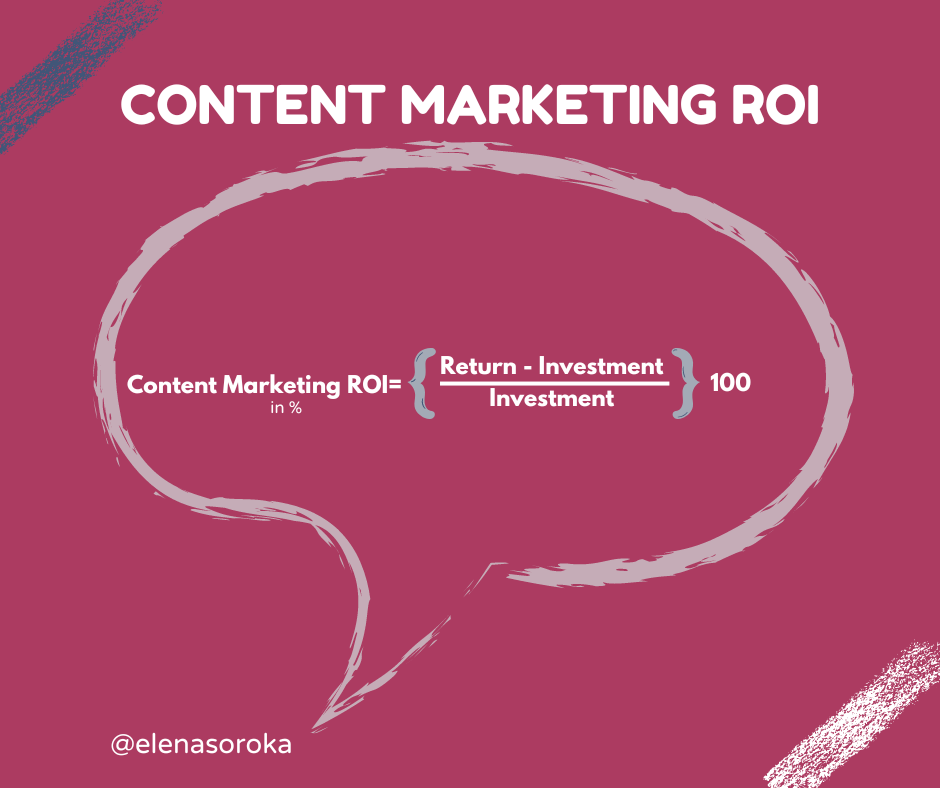All businessmen who think they are too intelligent ask me, “What is the ROI of the content strategy project?” I understand their point. Indeed, when we talk about business expenses, there should be, or better to say, it should be documented in the financial books that there is a return on investment. By the end of this read, you’ll have a clear understanding of ROI in the context of content marketing and be equipped with practical steps to ensure your content strategy drives accurate results for your business. Don’t miss the opportunity to maximize your returns – read on!
Opportunity cost
Before we delve deep into the discussion, I would like to present another term from the business world. Since I have a Bachelor’s in Business Administration, trust me, I know what I’m talking about here. The word is “opportunity cost.” In simple language, opportunity cost is the cost of the choices or, better to say, the cost of the decisions we make. Since it’s most probable that we are doing one action at a time, either going to work or staying at home, the opportunity cost of staying at home will be the loss of daily income. On the other hand, by choosing to go to work, we may miss a package delivery and need to order a new one, incurring extra fees. Businesses can lose far more money from a wrong decision than they would have invested initially.
Marketing as a Cost, Not as ROI:
Now, let’s examine why ROI is not precise in marketing. Marketing is an activity necessary for business growth. No one ever asks about the ROI of paying taxes – in fact, I would doubt those expenses much more than marketing (jokingly).
Without marketing, the product will not be sold, distributed, or generate profit. Joe Pulizzi and Robert Rose have provided an excellent example of marketing expenses. They analogize marketing expenses to gasoline for a car. How will you calculate the ROI of petrol? It’s a cost. That cost allows you to come to work faster and with much more comfort.
How to Calculate ROI Right:
First, let’s shift from marketing to content strategy, as it is a part of our marketing activities. When someone approaches me with problems related to business growth or customer loyalty, content marketing and content strategy are great investments for a business to understand its audience better and determine how to communicate effectively with them. Therefore, preparing the content strategy project, or the research and development phase, is a risk phase, as it is in many businesses. However, during the strategy and implementation stages, we can begin tracking specific metrics (decide which ones ahead) to calculate the return on investment.
Metrics that can help calculate the return on investment of a content strategy project/content marketing for social media:
Start with the Expenses:
- Content Strategist
- Content Production
- Content Publishing
- Content Measurement
Income:
- Determine the success of content marketing: Within the content strategy, you will find metrics that show the success of your content. Some posts are created to boost sales, while others are for audience growth.
Another part of the content strategy includes competitor analysis. From this research, we gain an overall understanding of benchmarks we can set and what we aim to achieve.

Therefore, we can know how good or bad our decisions were and which content performs better. ROI in Marketing/Content Strategy is an essential investment that allows you to grow quickly, steadily, and sustainably. Knowing what works best for your product can help reduce expenses in the long run. For content strategy consultations, please get in touch with me via email or on social networks.





